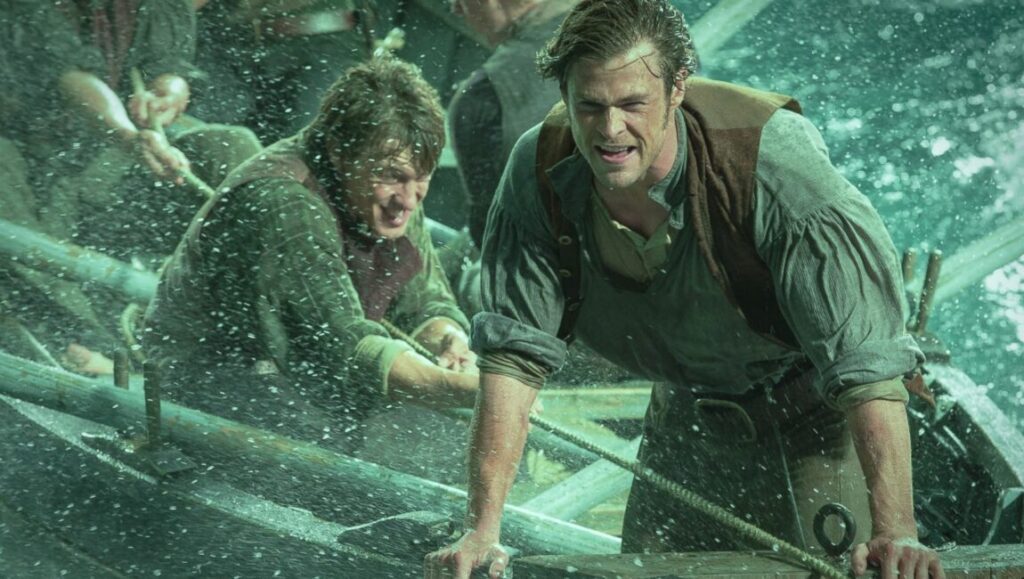You actually get two movies in In the Heart of the Sea. One is a reasonably tight seafaring adventure yarn based on the true story of the survivors of a whaling ship sunk by a pissed-off alabaster sperm whale in 1820, and the other is a pointlessly dull framing device in which Herman Melville (Ben Whishaw) interviews the sole living survivor of the voyage (Brendan Gleeson) so that he can one day write Moby Dick. That first movie isn’t necessarily outstanding, but Howard is nothing if not a solid technical craftsman, one who gravitates toward simple stories and attracts good collaborating talent. True events aside, this has all the hallmarks of any of a long line of seafaring films. The manly class struggle between seasoned whaler Owen Chase (Chris Hemsworth) and aristocrat/first-time captain Pollard (Benjamin Walker), the horror and deprivation of being stranded in the middle of the ocean, the thrilling shipwrecks…all of it cribbed from better films but no less solid for being lifted. As depicted here hunting whales seems like sheer suicidal audacity, taking little wooden boats into the open ocean with multi-ton blubbery anvils just waiting to pound you into the unforgiving depths, and the whaling sequences themselves are therefore pretty exciting, a combination of open-water location shooting, models, and green-screen sets (augmented with an awful lot of CGI, not all of it great). The rest is a woozy handheld, with dense frames full of foreground obstructions and constant close-ups of tactile details like tangled ropes and soaked deckboards. Anthony Dod Mantle, who also shot Howard’s previous film Rush, bathes everything in a strange blue/green/yellow palette, which helps to conceal most of the more egregious digital work but also seems to coat everything in pickle brine, possibly as an homage to John Huston’s 1956 film of Moby Dick and its grey/sepia monochrome. It’s all sturdy if unremarkable, but those pleasures are repeatedly undercut by the Melville scenes, just endless expository dialogue about stuff we’ve either already seen or are just about to, repeatedly highlighting that this story will one day become what final on-screen text informs us is a Great American Novel and tacking on a good 40 minutes of rhythm-disrupting padding. The film even ends with Melville actually penning the words “Call me Ishmael,” weirdly suggesting that the most interesting thing about this ostensibly thrilling maritime adventure in which many men suffered and died is that some of it wound up in a famous book.

